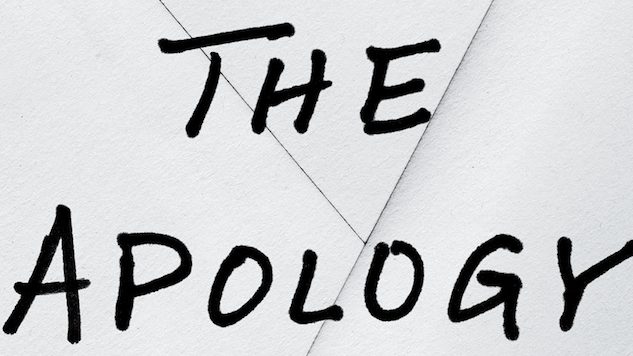Eve Ensler’s Father Abused Her. The Apology Is Her Attempt to Create Closure.

Playwright and activist Eve Ensler has been a voice for change for decades, carving out space for women’s stories with her groundbreaking work The Vagina Monologues. But before she became who the Tony Award-winner we know today, she suffered years of abuse at the hands of her father. In her new book, The Apology, she writes the words she wished he’d said to her.
Arthur Ensler died over 30 years ago, erasing Ensler from his will and ensuring his wife would remember their daughter was a “liar” who couldn’t be trusted. This came after decades of isolation, physical and sexual abuse, manipulation and cruelties. He never apologized or offered an explanation for any of his actions, many of which fractured his family so deeply that Ensler lists just one of her siblings in the acknowledgements.
 The Apology is Ensler’s attempt to create closure. In it, she imagines a letter from her father, who has spent the past three decades in a void where he’s been forced to consider his life. The letter is equal parts confession and meditation, explaining what drove him to abuse, how he perceived his relationship with his daughter and how he’s grown since death. Ensler writes in a brief introduction that her father never opened up to her about his life, so she had to “conjure” much of his history and perspective. The line between the Arthur who lived and the man Ensler invented isn’t clear, reminding readers of the book’s ultimate purpose: giving Ensler what she needs and never received.
The Apology is Ensler’s attempt to create closure. In it, she imagines a letter from her father, who has spent the past three decades in a void where he’s been forced to consider his life. The letter is equal parts confession and meditation, explaining what drove him to abuse, how he perceived his relationship with his daughter and how he’s grown since death. Ensler writes in a brief introduction that her father never opened up to her about his life, so she had to “conjure” much of his history and perspective. The line between the Arthur who lived and the man Ensler invented isn’t clear, reminding readers of the book’s ultimate purpose: giving Ensler what she needs and never received.
The loose narrative begins with Arthur’s emotionally negligent parents and abusive older brother before exploring the charming performance that defined his adult life. His temper and controlling nature meant that his family—he was 50 when he became a father—lived in fear of their patriarch. But it was Eve who suffered for the most prolonged period of time, in part because she never quite gave him the obedience and subservience he craved.
The abuse Ensler experienced is related in graphic detail, making for a harrowing and challenging read. The asides in which her imagined father works towards redemption are equally challenging, as are the times he hints that Eve represented something he always wanted or how his childhood left him broken. There are no easy answers in this slim work, just tragedies heaped on cruelties.
This book will likely serve as a blueprint for others who have suffered abuse and are, as Ensler writes in her dedication, “still waiting for an apology.” But Ensler’s commentary about the book’s larger purpose—limited to just one page—leaves a void. Her media interviews add to the work, but without that context the book’s strengths can also read as weaknesses. Her recountings of her own abuse are almost too graphic to bear and will likely trigger the survivors the book could help, and her father’s imagined self-examination makes the apology feel self-serving at times. What’s more, the question of whether or not he deserves what Ensler has offered his memory—a chance to set things right—is never answered.
The Apology offers no clean, easy answers. Whether that’s to the book’s advantage or disadvantage will depend on the reader.
Bridey Heing is a freelance writer based in Washington, DC. More of her work can be found here.







































